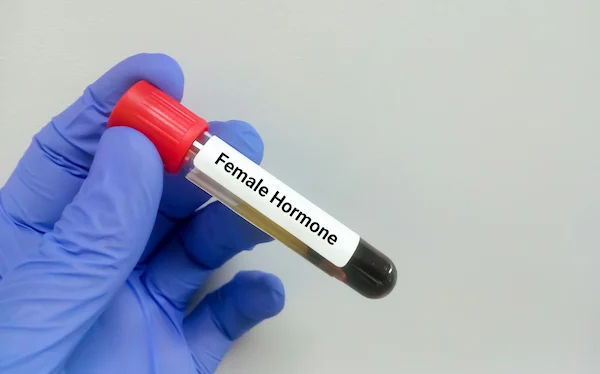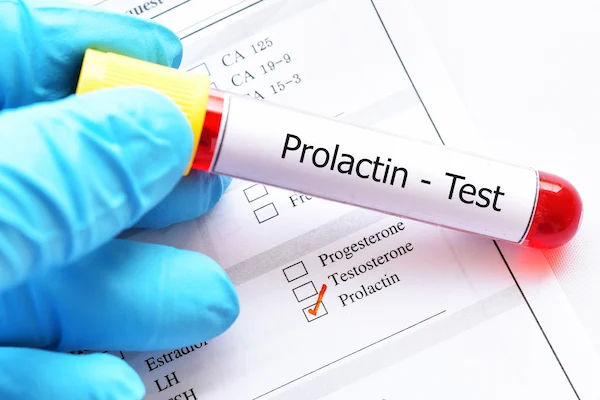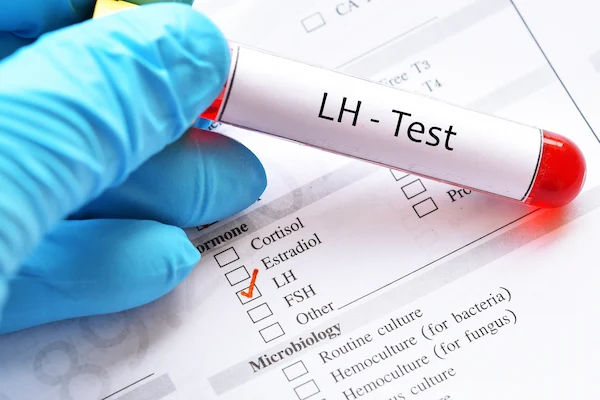Irregular Periods? These Hormone Tests Can Help: A Complete Guide for Women Aged 18–35
Experiencing irregular periods between 18-35? Discover which hormone tests can pinpoint the cause. Our complete guide helps you understand results & find solutions for menstrual irregularities.

Written by
Last updated on 4th Aug, 2025
.webp?tr=q-80,f-webp,w-350,dpr-2,c-at_max 700w)
Irregular Periods? These Hormone Tests Can Help: A Complete Guide for Women Aged 18–35
Irregular periods are one of the most common concerns faced by women between the ages of 18 and 35. Whether you're skipping periods, experiencing unexpected spotting, or struggling with delayed cycles, the underlying cause is often hormonal. While an occasional missed period is usually nothing to worry about, frequent or persistent irregularities should not be ignored. They could be a sign of underlying hormonal imbalances, stress, thyroid issues, or more commonly, conditions like PCOS (Polycystic Ovary Syndrome).
Fortunately, modern diagnostic tools offer comprehensive hormone test panels that can help pinpoint the root cause of irregular periods. From FSH and LH to Prolactin and Thyroid function tests, these blood investigations give doctors a clearer picture of your reproductive health. If you're struggling to make sense of your irregular cycles, this guide will walk you through the most important hormone test for periods and explain how a PCOS blood test panel, along with ultrasound—can set you on the path to regularity and better health.
Why Are Hormone Tests Important for Irregular Periods?
The menstrual cycle is governed by a delicate balance of hormones produced by the brain, ovaries, and endocrine glands. Disruptions in this hormonal network can cause your cycle to become shorter, longer, heavier, lighter, or disappear altogether. Hormone tests provide vital information such as:
- Whether you're ovulating regularly
- If your hormone levels are too high or too low
- If you might have PCOS or other endocrine disorders
- Whether stress, weight changes, or other lifestyle factors are affecting your cycle
Identifying these patterns early helps in choosing the right treatment—be it medication, lifestyle changes, or further testing.
Most Important Hormone Tests for Irregular Periods
When you visit a doctor for irregular menstrual cycles, they may recommend a range of hormone tests. Here are the key ones you should be aware of:
1. FSH (Follicle Stimulating Hormone)
What it does: FSH helps stimulate the growth of ovarian follicles, which contain your eggs.
Buy FSH (Follicle Stimulating Hormone)
- Why it matters: High FSH levels may indicate diminished ovarian reserve (low egg count), while low levels could suggest issues with the pituitary gland.
- Ideal for: Assessing fertility, menstrual irregularity, and possible early menopause.
- When to test: Typically on Day 2 or 3 of your cycle.
2. LH (Luteinising Hormone)
- What it does: LH plays a key role in triggering ovulation, the release of an egg from the ovary.
- Why it matters: High LH levels, especially when compared to FSH, are a hallmark of PCOS. Irregular LH surges can also disrupt ovulation.
- Ideal for: Diagnosing PCOS, evaluating ovulatory function.
- When to test: Usually alongside FSH on Day 2 or 3 of the cycle.
3. Prolactin Test
- What it does: Prolactin is a hormone responsible for milk production after childbirth, but elevated levels outside of pregnancy can interfere with menstruation.
- Why it matters: High prolactin levels can suppress ovulation, leading to missed or infrequent periods.
- Ideal for: Women with irregular periods and symptoms such as milky discharge from nipples (galactorrhoea) without pregnancy.
- When to test: Can be tested any time in the cycle; fasting is usually recommended.
4. Thyroid Profile Tests (T3, T4, TSH)
- What it does: Your thyroid regulates metabolism, energy levels, and many reproductive functions.
- Why it matters: Both hyperthyroidism and hypothyroidism can lead to irregular or absent periods.
- Ideal for: Women with symptoms like fatigue, weight changes, hair thinning, or mood swings in addition to cycle issues.
- When to test: Any time in the cycle; fasting not necessary.
5. Androgen Profile (Testosterone, DHEAS)
- What it does: Androgens are male hormones that are also present in small amounts in women.
- Why it matters: Elevated androgens are a key feature of PCOS and can cause irregular cycles, acne, and excessive facial or body hair.
- Ideal for: Women showing signs of hormonal imbalance such as oily skin, acne, and hirsutism.
- When to test: Usually done early in the cycle or as per doctor’s advice.
Get Your Health Assessed Here
Combo Panels: Test Packages for PCOD (Polycystic Ovarian Disease)
Polycystic Ovarian Disease (PCOD) affects hormonal balance, metabolism, and reproductive health in women, often leading to symptoms like irregular periods, acne, weight gain, and hair thinning. Apollo 24|7 offers specialised PCOD test panels that combine key diagnostic markers to help detect and manage the condition effectively. Here are the PCOD-related lab test panels available on Apollo 24|7, along with their names and overview:
1. Apollo PCOD Profile – Essential: Includes 4 key tests, TSH, LH, FSH, and Prolactin, to evaluate essential hormone levels that play a crucial role in ovulation, menstrual cycle regulation, and pituitary function. Ideal for initial screening when PCOD is suspected.
2. Apollo PCOD Profile – Advanced: Includes 29 tests that provide a comprehensive assessment of thyroid function, sex hormones, insulin resistance, lipid profile, vitamin D, and other metabolic parameters. This panel is designed to uncover both the hormonal and metabolic imbalances commonly seen in PCOD, offering a full picture for better treatment planning.
Combo PCOD Test Panels: Why They Make Sense
Choosing a bundled PCOD test panel over individual tests provides several advantages:
- Cost-effective: More affordable than ordering tests separately
- Time-saving: Fewer clinic visits and quicker analysis
- Comprehensive: Evaluates multiple PCOD-related factors in one go, improving diagnostic accuracy and treatment outcomes
Why Your Doctor May Recommend an Ultrasound?
In addition to blood tests, a pelvic ultrasound is often advised to check for:
- Polycystic ovaries (multiple immature follicles)
- Uterine abnormalities such as fibroids or polyps
- Ovarian cysts or endometriosis
A transvaginal ultrasound offers the clearest picture of your reproductive organs and complements the findings from your hormone tests. The presence of 12 or more small follicles in each ovary, or increased ovarian volume, may support a PCOS diagnosis, even if your blood hormone levels are borderline.
Signs You Should Get a Hormone Test for Periods
You may want to consider testing if you’re experiencing:
- Periods that come less than every 21 days or more than every 35 days
- Missed periods for 2 or more cycles in a row
- Very heavy or very light bleeding
- Spotting between periods
- Unexplained weight gain or difficulty losing weight
- Excess hair on face, chest, or abdomen
- Severe acne
- Fatigue, mood swings, or hair thinning
Best Time to Take Hormone Tests
While some hormone levels fluctuate throughout the cycle, many are best tested during the early follicular phase, typically on Day 2 to Day 5 of your period. This gives the most accurate snapshot of baseline hormone levels. Other tests like TSH, Prolactin, and androgens can be tested any time, but your doctor will guide you depending on your cycle pattern.
How to Prepare for a Hormone Test?
Preparation can vary depending on which hormone test you're taking:
- Fasting: Required for insulin, glucose, and lipid profile.
- Menstrual cycle tracking: Know which day of your period you're on.
- Medications: Inform your doctor about any birth control pills or hormone therapy, as these may alter results.
- Stress and sleep: Try to get a good night's sleep, as stress can influence certain hormone levels like cortisol and prolactin.
Understanding Your Test Results
Here's a quick guide to what certain hormone results may indicate:
Note: Always consult your gynaecologist or endocrinologist to interpret the results in the context of your symptoms.
What to Do After Getting the Test Results?
Getting your test results is just the beginning of your PCOD management journey. What you do next can make a big difference in how effectively you control symptoms and support hormonal balance. Here’s what to focus on after receiving your results:
- Discuss them with your doctor: Don’t try to self-diagnose.
- Track your cycles: Use a period-tracking app to see patterns.
- Make lifestyle changes: A balanced diet, regular exercise, and stress management can greatly improve hormone balance.
- Start treatment if needed: Based on diagnosis, this could include hormonal pills, ovulation inducers, or insulin-sensitising agents.
- Follow up: Retesting may be necessary to monitor improvement.
Conclusion
Irregular periods are often your body's way of signalling that something is off, especially hormonally. The good news is that with the right hormone test for periods, including a detailed pcos blood test panel, and supportive tools like pelvic ultrasound, the underlying cause can be identified quickly and treated effectively.
If you're experiencing irregular menstrual cycles, don’t delay. Explore tailored diagnostic packages from Apollo 24|7 and get clarity on your reproductive health today. With easy booking, home sample collection, and expert consultations, managing your menstrual health has never been simpler. Explore PCOD Screening Packages on Apollo 24|7 and take charge of your hormonal health.


.webp)



